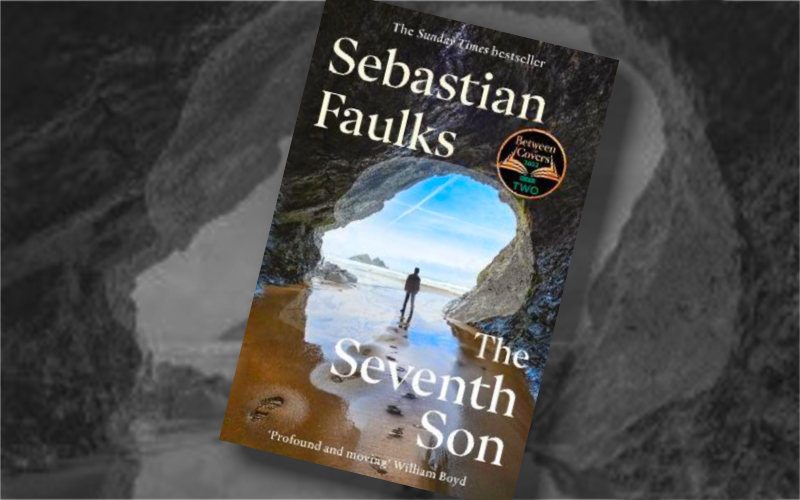There are books that are a joy to read for their elegant writing, and books you devour for their clever plot. This was both for me. I could feel it calling from my bedside table as I went through my day. It’s centered around interesting, provocative subjects – mostly genetics and anthropology –which gives it lots of potential for a book club read, and kicks off a conversation that starts: what if this really happened? However…
But before the however, however, all the things I loved about The Seventh Son. It’s set in the near future, where a Elon Musk type character called Parn is playing God and damn the ethics. I pictured Mark Rylance’s character in ‘Don’t Look Up’, a man entitled (by God, does he think?) to make decisions for the millions. Actually, that’s Mark Rylance as Cromwell, too. Got to watch the quiet ones. Our narrator is an American anthropology student called Talissa, who carries a surrogate child for an English couple. It’s a business transaction, she’s funding her studies, and, as agreed, hands over the child at birth and retreats for the agreed twelve years, before developing a mutually fond relationship with the family. Sadly, her own relationship doesn’t survive the surrogacy and her erstwhile love, Felix, disappears into a well of delusions.
So what of the child, and the society he lives in? We are post-colonialism, post-racism, post sexism but seemingly still dead set on creating boundaries between us and them. Tribalism, it appears, is intrinsic to the species. The boy, Seth, grows up markedly different to other children. We are told this, but his differences are subtle in a world full of diverse children. He’s clever in school but doesn’t apply himself; plays football; doesn’t pick up social clues very well or have many friends; isn’t interested in art or music but is good with animals. He’s attractive to girls and shy, but manages a fairly normal sounding relationship with a girl at university. He has love with his parents; he is a kind boy. Strange? Not really. As a surrogate child, though, he and the others who were born in the same clinic are regularly tested, and we are told he has different cognitive functions. This is the guts of the book and where it gets really interesting. Faulks, though his characters, examines the evolution of human consciousness, how we have differed from earlier species of human, what anthropology can teach us abut ourselves and what it costs to be human. Is the empathy and creativity developed by homo sapiens the flip-side to madness, or wickedness?
Sometimes, the theory behind the experiment at the core of the story (no spoilers here) gets in the way of the telling; characters are shunted along to get to the next development. And while I enjoyed the forays into the post-modern world (eg. identity cards that allocate a level of historic injustice, anything from slavery to red hair, for a person to claim a positive discrimination in society), these did take us out of the narrative in rather brutal explanation dumps. ” ‘I think you’re forgetting ADEPT,’ said Mary. The provisions of the Anti-Discrimination and Equality of Populations Treaty, passed by the United Nations in July 2040, had been adopted by member countries to varying degrees. The Unites States passed a Thirty-Fifth Amendment; the European Union issued binding directives. The British Parliament, with no constitution to amend and with its application to rejoin the EU having been rejected, continued to dispute the merits of the treaty with itself.“
I would have loved to be the editor of this book. Ha! I would have asked Mr Faulks why so subtle here and so blunt there? Will we really still be afraid of neurodivergence in the future? Why not delve more into racism: ‘Because that would be “racist”, wouldn’t it? If we still used that word.’ We don’t use the word in 2030, but it still seems to be a thing. Talissa’s friend Kavya defines herself as ‘Indian’ although says it’s because of her colour and the fact she likes spicy food. She’s English. So yes, race still is a thing. (I also wonder for how long we will define ourselves by geographical boundaries, but that’s another story.) And I would like better illustrations of Seth: how does his difference manifest itself? And please Mr Faulks, I would say, were I his editor, please suggest a different finale. It doesn’t have to end like this, there’s no need to get all weird on us and then cop out. In my mind, I have already disregarded his ending and imagined a far more positive alternative. Because, despite the ethical duplicity and betrayal and sadness, this is really a book full of kindness and good intentions and a world, perhaps, aiming for a better moral heading.
I’ve read many of Sebastian Faulks’s books and enjoyed them all, but have never reviewed them, which is an oversight. I’ll re-read and review some over the summer with great pleasure.

